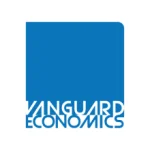The Deutsche Gesellschaft für Internationale Zusammenarbeit (GIZ) GmbH has been working in Rwanda for more than 40 years.Rwanda is a country with a turbulent and, at times, tragic history, and the impact of the 1994 genocide is still felt today. Nevertheless, Rwanda has achieved progress at a number of levels since 2000. Stability, security, steady economic growth and low corruption are some of the key successes. The country is also regarded as a pioneer in Africa in environmental protection, digitalisation and gender equality.Despite these encouraging developments, however, Rwanda is still a very poor country that continues to rely on international support. This support is in virtually all sectors and is coordinated by the Rwandan Government. As a reliable partner in an efficient task-sharing system, GIZ works in three priority areas on behalf of the German Government:
Expression of interest (EoI)
Consultancy for provision of Interpretation services and rental of simultaneous Interpretation Systems
Reference Number: 83466378
Date of Publication: 29.05.2024
1. Context
The Deutsche Gesellschaft für Internationale Zusammenarbeit (GIZ) GmbH is a federally owned international cooperation enterprise for sustainable development with worldwide operations. The GIZ Office in Kigali covers GIZ’s portfolio in Rwanda and Burundi. GIZ Rwanda/Burundi implements projects on behalf of the German Federal Ministry for Economic Cooperation and Development, the European Union and other commissioning authorities in the following priority areas: Sustainable Economic Development, Good Governance, Climate, Energy and Sustainable Urban Development, Digitalization and Digital Economy, Mineral Governance, Peace and Security in the Great Lakes Region.
The International Conference on the Great Lakes Region (ICGLR) is an inter-governmental organization with 12 member states in the African Great Lakes Region. Its establishment in 2004 was based on the recognition that political instability and conflicts in and between these countries have a considerable regional dimension and thus require a concerted effort in order to promote sustainable peace and development.
On 12 December 2018, the International Conference on the Great Lakes Region (ICGLR), in partnership with the European Union, the Federal Republic of Germany and the Office of the United Nations Special Envoy of the Secretary General for the Great Lakes (O-SESG-GL) officially launched the “Regional Project on Peace and Security in the Great Lakes Region”. The project is co-funded by the European Union (EU) through its 11th European Development Fund (EDF) and the German Federal Ministry for Economic Cooperation and Development (BMZ). Implementation is entrusted to the Deutsche Gesellschaft für Internationale Zusammenarbeit (GIZ) GmbH and O-SESG-GL.
Following on the achievements of the regional project on Peace and Security in the Great Lakes Region implemented from 2017 to 2022, GIZ has been commissioned to implement the follow-up measure, the project “Cooperation for Peace, Security and Responsible Governance of Natural Resources in the African Great Lakes Region” together with ICGLR on behalf of BMZ and co-funded by the Dutch Government and the European Union.
The initiative aims to contribute to the consolidation of peace and stability by strengthening the capacity of the Secretariat of the International Conference on the Great Lakes Region (ICGLR) to implement the Pact on Security, Stability and Development in the Great Lakes Regions and its protocols.
Current Situation
In December 2022 a new project phase has started for which the project partners jointly conducted an operational planning of the Regional project, to evaluate the past phase’s progress and identify priority actions within the project implementation phase. A key recommendation from the review related to enhancing the communication and visibility of the project to ensure that project achievements and lessons learned are widely dissimated and shared. In order to achieve this, Communication between partners in various locations is essential to achieving this goal, and it is imperative that all parties comprehend the project’s accomplishments and can express lessons learned in the three professional languages of French, English, and Portuguese. For this reason, the project is looking to establish a contingency contract to guarantee skilled simultaneous interpretation services in Rwanda and Burundi.
2. Tasks to be performed by the contractor
The contractor is responsible for providing the following services:
The overall objective of the consultancy is to strengthen the communication of the ICGLR programme through the interpretation services of key ICGLR local and regional diplomatic meetings, field visits, ICGLR policy documents and reports.
GIZ wishes to contract a professional interpretation services company with accurate high quality and confidential Interpretation Service for English to French and English to Portuguese and vice versa. This is a regional assignment with supervision by the contractor when necessary.
- The contractor provides equipment and assumes the associated operating and administrative costs.
- The consultant will examine the project-related documents and correspondence, progress reports, annual and quarterly workplans, and consultant reports for the project that will be used for the interpreting services related meetings.
- Provide direct interpretation services, in project meetings, consultation workshops, training events, roundtables, (virtual and in person where required) meetings and field visits, when necessary to ensure good quality and timeliness of translated documents.
- Check appropriate reference to ensure proper appreciation and use of the project technical terminology.
- The contractor manages costs and expenditures, accounting processes and invoicing in line with the requirements of GIZ.
- The contractor reports regularly to GIZ in accordance with the current AVB of the Deutsche Gesellschaft für Internationale Zusammenarbeit (GIZ) GmbH.
The consultancy will take place over a period from July 2024 to December 2025.
The places of this assignment are Rwanda and Burundi. The bidders are expected to have interpreters available in both locations for English and French interpreters, no travels are foreseen for these interpreters. Only for Portuguese interpreters travel costs can be claimed (see 5. Costing requirements).
3. Concept
In the tender, the tenderer is required to show how the objectives defined in Chapter 2 (Tasks to be performed) are to be achieved, if applicable under consideration of further method-related requirements (technical-methodological concept). In addition, the tenderer must describe the project management system for service provision.
Note: The numbers in parentheses correspond to the lines of the technical assessment grid.
Technical-methodological concept
Strategy (1.1): The tenderer is required to consider the tasks to be performed with reference to the objectives of the services put out to tender (see Chapter 1 Context) (1.1.1). Following this, the tenderer presents and justifies the explicit strategy with which it intends to provide the services for which it is responsible (see Chapter 0 Tasks to be performed) (1.1.2).
The tenderer is required to present the actors relevant for the services for which it is responsible and describe the cooperation (1.2) with them.
The tenderer is required to describe the key processes(1.4) for the services for which it is responsible and create an operational plan or schedule that describes how the services according to Chapter 2 (Tasks to be performed by the contractor) are to be provided.
Project management of the contractor (1.6)
The tenderer is required to explain its approach for coordination with the GIZ project. In particular, the project management requirements specified in Chapter 2 (Tasks to be performed by the contractor) must be explained in detail. The tenderer must draw up a personnel assignment plan that explains the proposed experts, and a plan that includes information on assignment with their location.
4. Personnel concept
The contractor is required to provide personnel who are suited to filling the positions described, on the basis of their CVs (see Chapter 4), the range of tasks involved and the required qualifications.
The below specified qualifications represent the requirements to reach the maximum number of points in the technical assessment.
For all experts, please indicate their place of residence so that travel budgets can be calculated and evaluated accordingly.
The contractor will indicate the point contact person among the interpreters.
Short-term expert pool with minimum 4, maximum 8 members for English French Interpreters
For the technical assessment, an average of the qualifications of all specified members of the expert pool is calculated. Please send a CV for each pool member (see below Chapter 6 Requirements on the format of the bid) for the assessment.
Tasks of the short-term expert pool
- Overall responsibility for the advisory packages of the contractor (quality and deadlines)
- Coordinating and ensuring communication with GIZ, partners and others involved in the project
- Regular reporting in accordance with deadlines
Qualifications of the short-term expert pool
- Education/training: university degree (‘Diploma’/Master) in in Interpretation, language study or related field
- General professional experience: 5 plus years of professional experience in the interpretation sector
- Specific professional experience: 3 years of experiences carried out for the benefit of national or international, governmental or non-governmental organizations, ideally within the framework of regional organisations/ development projects / programs (work in connection with the priority themes mentioned by GIZ/ICGLR will be an asset).
- Regional experience: 3 years of experience in projects in the great lakes (region), of which 2 years in projects in Burundi, Uganda and Rwanda
The tenderer must provide a clear overview of all proposed short-term experts and their individual qualifications.
Short-term expert pool with minimum 2, maximum 8 members for English-Portuguese Interpreters
For the technical assessment, an average of the qualifications of all specified members of the expert pool is calculated. Please send a CV for each pool member (see below Chapter 6 Requirements on the format of the bid) for the assessment.
Tasks of the short-term expert pool
- Overall responsibility for the advisory packages of the contractor (quality and deadlines)
- Coordinating and ensuring communication with GIZ, partners and others involved in the project
- Regular reporting in accordance with deadlines
Qualifications of the short-term expert pool
- Education/training: university degree (‘Diploma’/Master) in in Interpretation, language study or related field
- Language: A1 -level language proficiency in Portuguese
- General professional experience: 5 plus years of professional experience in the interpretation sector
- Specific professional experience: 3 years of experiences carried out for the benefit of national or international, governmental or non-governmental organizations, ideally within the framework of regional organisations/ development projects / programs (work in connection with the priority themes mentioned by GIZ/ICGLR will be an asset).
- Regional experience: 3 years of experience in projects in the great lakes (region), of which 2 years in projects in Burundi, Uganda and Rwanda
The tenderer must provide a clear overview of all proposed short-term experts and their individual qualifications.
Soft skills of all team members
In addition to their specialist qualifications, the following qualifications are required of team members:
- Team skills
- Initiative
- Communication skills
- Socio-cultural skills
- Efficient, partner- and client-focused working methods
- Interdisciplinary thinking
The tenderer must provide a clear overview of all proposed short-term experts and their individual qualifications.
5. Costing requirements
Assignment of personnel and travel expenses
Per-diem and overnight accommodation allowances are reimbursed as a lump sum up to the maximum amounts permissible under tax law for each country as set out in the country table in the circular from the German Federal Ministry of Finance on travel expense remuneration (downloadable at https://www.bundesfinanzministerium.de).
Accommodation costs which exceed this up to a reasonable amount and the cost of flights and other main forms of transport can be reimbursed against evidence
All business travel must be agreed in advance by the officer responsible for the project.
Sustainability aspects for travel
GIZ would like to reduce greenhouse gas emissions (CO2 emissions) caused by travel. When preparing your tender, please incorporate options for reducing emissions, such as selecting the lowest-emission booking class (economy) and using means of transport, airlines and flight routes with a higher CO2 efficiency. For short distances, travel by train (second class) or e-mobility should be the preferred option.
If they cannot be avoided, CO2 emissions caused by air travel should be offset. GIZ specifies a budget for this, through which the carbon offsets can be settled against evidence.
There are many different providers in the market for emissions certificates, and they have different climate impact ambitions. The Development and Climate Alliance (German only) has published a list of standards (German only). GIZ recommends using the standards specified there.
Specification of inputs
|
Fee days |
Number of experts |
Total number of days |
Comments |
||
|
Expert pool of English French Interpreters |
4 |
Up to 100 |
Interpreters for English/French need to reside in Rwanda/Burundi (no travel) |
||
|
Expert pool of English Portuguese Interpreters |
2 |
Up to 50 |
Interpreters for Portuguese, travel costs to the place of assignment can be facilitated (see fixed travel budget below) |
||
|
Travel expenses |
Quantity |
Price up to /RWF |
Total up to /RWF |
Comments |
|
|
Accommodation lump sum Rwanda |
20 |
61,291 |
1,225,820 |
This travel budget contains, per-diem allowances and overnight allowances in the country of as per Steuerliche Behandlung von Reisekosten und Reisekostenvergütungen bei betrieblich und beruflich veranlassten Auslandsreisen ab 1. Januar 2024 (bundesfinanzministerium.de) converted into RWF as per inforEUR 04/24 For English/French interpreters it is mandatory to reside in the place of assignment (Rwanda/Burundi). This travel budget can only be used for Portuguese interpreters. This budget will be settled as lump sum against performance. |
|
|
Subsistence allowance Rwanda |
20 |
60,700 |
1,214,000 |
||
|
Accommodation lump sum Burundi |
30 |
50,147 |
1,504,410 |
||
|
Accommodation lump sum Burundi |
30 |
49,700 |
1,491,000 |
||
|
Fixed Travel budget for flight tickets, visa and airport transfers expenses |
1 |
10,000,000 |
10,000,000 |
A budget is earmarked for travel to the following countries: 5 trips to Rwanda and/or 5 trips to Burundi (depending on the residence of the experts). For English/French interpreters it is mandatory to reside in the place of assignment (Rwanda/Burundi). This travel budget can only be used for Portuguese interpreters. Travels to and within the country of assignment, transfer to/from airport etc., visa costs, CO2 compensation. This budget will be settled against evidence. |
|
|
Other costs |
Number |
Price up to /RWF |
Total up to /RWF |
Comments |
|
|
Rental of materials and equipment |
Up to 30 |
Equipment and technician SI Equipment (up to 100 receivers, 100 headsets, consoles, radiator, up to 2 booth, Conference discussion 2 Microphones, sound system, technician, transport, setting and dismantle of the equipment) available in the place of assignment (Rwanda/Burundi) |
|||
|
Flexible remuneration |
– |
– |
3,500,000 |
A budget of 3,500,000RWF is foreseen for flexible remuneration. Please incorporate this budget into the price schedule. Use of the flexible remuneration item requires prior written approval from GIZ. |
|
6. Requirements on the format of the bid
The structure of the bid must correspond to the structure of the ToRs. In particular, the detailed structure of the concept (Chapter 3) should be organised in accordance with the positively weighted criteria in the assessment grid (not with zero). The tender must be legible (font size 11 or larger) and clearly formulated. It must be drawn up in English.
The complete tender must not exceed 10 pages (excluding CVs). If one of the maximum page lengths is exceeded, the content appearing after the cut-off point will not be included in the assessment.
The CVs of the personnel proposed in accordance with Chapter 4 of the ToRs must be submitted using the format specified in the terms and conditions for application. The CVs shall not exceed 4 pages each. They must clearly show the position and job the proposed person held in the reference project and for how long. The CVs can also be submitted in English.
Please calculate your financial tender based exactly on the parameters specified in Chapter 5 Quantitative requirements; otherwise, it is an inadmissible secondary offer that must be excluded from the procedure. The contractor is not contractually entitled to use up the days, trips, workshops or budgets in full. The number of days, trips and workshops and the budgets will be contractually agreed as maximum limits. The specifications for pricing are defined in the price schedule.
7. Submission of the offer
7.1 Technical proposal
Participating companies must submit the following documents:
- Self-declaration of eligibility for the award
- A valid registration certificate (issued by RDB),
- VAT certificate (issued by RRA)
- Tax clearance certificate (issued by RRA).
- Proof of successful completion of related assignments
- Technical Proposal (attached template for technical proposal MUST be used)
- Up to date CVs of proposed experts
Non-submission/Partial submission of commercial/technical documents mentioned above by any bidder will lead to a rejection of the entire bid.
7.2 Financial offer:
Financial offer indicates the all-inclusive total contract price, supported by a breakdown of all costs as described in the specification of inputs. The costs must be in RWF and VAT excluded (Price sheet MUST be used).
Please submit electronically your EoI (technical & Financial offer) in 2 separated emails and should be in PDF files to this email ONLY: RW_Quotation@giz.de until latest 13th June 2024. Please you must write on each email subject this sentence: 83466378-Technical/financial offer, without this sentence, your offer may not be considered.
Hard copies are not allowed this time
GIZ reserves all rights
Annexes
- Self-declaration of eligibility for the award
- Eligibility assessment grid
- Technical assessment grid
- Technical proposal template
- Price sheet
Attachment





